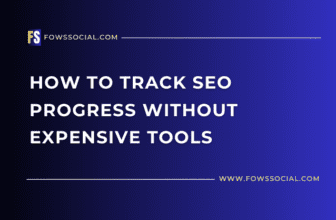Can You Rank on Google Without Backlinks in 2025?
The constantly changing world of search engine optimization (SEO) has sparked a lively debate among digital marketers, business owners, and SEO experts: Can you achieve a high Google ranking in 2025 without the use of backlinks? While backlinks have traditionally played a crucial role in Google’s algorithm to ascertain a website’s credibility and placement in search results, recent developments in SEO strategies indicate that it might be feasible to rank on Google without a heavy dependence on backlinks.
This article will discuss the importance of backlinks in SEO, the evolution of search algorithms, and alternative strategies businesses can use to boost search rankings without depending solely on backlinks. It will also examine the future of SEO and suggest ways for businesses to adjust their strategies to remain competitive in the digital world.
Exploring the Importance of Backlinks in SEO
Backlinks, or inbound links, are essential for SEO as they communicate to search engines the quality and relevance of a website. Getting backlinks from other sites is like receiving a vote of confidence, indicating that the website is trustworthy and authoritative. This can in turn boost the website’s search rankings and visibility in search results.
In the past, SEO professionals have placed a strong emphasis on backlinks, using various strategies to enhance a website’s authority and ranking. This focus has resulted in a booming industry of services dedicated to building backlinks, such as guest posting and other tactics to secure links from reputable websites.
The use of backlinks has, unfortunately, resulted in unethical behaviors like link spamming, paid link schemes, and other black hat SEO strategies aimed at manipulating search engine rankings. As a response, search engines such as Google regularly update their algorithms to counteract these tactics and deliver users with more meaningful and reputable search results.
Search algorithms are evolving in today’s digital landscape.
Recently, Google has implemented multiple updates to its search algorithms that have moved the emphasis away from traditional ranking factors such as backlinks. Updates like Google Panda, Penguin, and Hummingbird now prioritize user experience, content quality, and relevance in search rankings. As a result, businesses have had to reevaluate their SEO strategies and adjust to the evolving search algorithms.
In recent years, a major shift has occurred with the increasing prevalence of artificial intelligence (AI) and machine learning in search algorithms. For instance, Google’s RankBrain algorithm uses machine learning to enhance its understanding of the context and purpose behind search queries, rather than solely depending on keywords and backlinks. Consequently, websites that offer useful and pertinent content to users have a greater chance of ranking higher in search results, even if they lack a robust backlink profile.
The importance of backlinks in SEO has been impacted by the increase in mobile search. Google now prioritizes mobile-friendliness and page speed as ranking factors due to the growing number of people using mobile devices to search for information. This means that websites optimized for mobile devices and offering a smooth user experience have a better chance of ranking well in mobile search results, even without a strong backlink profile.
Ways to Rank in Search Engines Without the Use of Backlinks
Backlinks remain a crucial element in SEO, but businesses can enhance their search rankings by implementing various strategies that do not rely solely on backlinks. These tactics prioritize the delivery of top-notch content, improving user experience, and establishing a robust brand presence on the internet.
1. Enhance Search Rankings without Backlinks by Generating Top-Notch Content: A proven method to boost search rankings even without backlinks is to produce premium, pertinent content that appeals to your desired audience. This could involve creating blog posts, articles, videos, infographics, and other types of content that offer valuable information to users, meeting their needs and capturing their interests. By prioritizing the delivery of valuable content, you can draw in organic traffic to your site and gradually enhance your search rankings.
2. Enhance On-Page SEO: To enhance on-page SEO, it is essential to optimize the content, meta tags, and other elements of your website to increase visibility on search engines. This can be achieved by incorporating relevant keywords, organizing content for better readability, and optimizing meta tags and headings. By improving on-page SEO, your website can gain more relevance and authority in search engine algorithms, resulting in better search rankings.
3. Enhance User Experience: User experience is vital for SEO success, as Google gives preference to websites that offer a smooth and intuitive experience. This involves having a quick-loading site, simple navigation, mobile friendliness, and clear calls to action. By concentrating on enhancing the user experience of your website, you can boost engagement, decrease bounce rates, and elevate your search rankings.
4. Establish a Robust Social Media Presence: Building a strong presence on social media can have a major impact on boosting your search rankings without the need for backlinks. By actively engaging with your audience and sharing your content on various platforms, you can enhance brand visibility, attract more website visitors, and enhance your website’s credibility in the eyes of search engines. Furthermore, social interactions such as likes, shares, and comments can indirectly impact your search rankings by showing search engines that your content is relevant and appealing.
5. Prioritize Local SEO: When targeting a local audience, local SEO can boost search rankings even without backlinks. This includes optimizing your website for local search queries, setting up a Google My Business profile, and garnering positive reviews. By emphasizing local SEO, you can enhance visibility in local search results and draw in customers in your vicinity.
Heading: Anticipating the Evolution of SEO in 2025
Looking towards 2025, the future of SEO is expected to evolve further with AI, machine learning, and user experience improvements. Although backlinks will remain important, businesses will need to adjust their approaches to prioritize quality content, user experience optimization, and establishing a reputable online presence.
The future of SEO could be influenced by the growing trend of voice search. Virtual assistants such as Siri, Alexa, and Google Assistant are becoming more popular, leading to an increase in the use of voice search for online information. This change has SEO implications, as voice search queries are often more conversational and longer, prompting businesses to optimize their content for natural language searches.
In the future of SEO, one trend to keep an eye on is the increasing focus on user experience and mobile compatibility. As the number of individuals using mobile devices to access the internet grows, Google is expected to prioritize mobile optimization and page speed as key factors in search engine rankings. This implies that businesses must prioritize mobile-friendliness and ensure a smooth user experience on all devices in order to enhance their search rankings.
Ultimately, backlinks have been a crucial element in SEO for a long time, but in 2025, it is feasible to achieve a high rank on Google without depending solely on backlinks. By prioritizing the creation of top-notch content, enhancing user experience, and establishing a robust online brand presence, companies can enhance their search rankings and remain competitive in the constantly evolving digital realm. Moving forward, it is imperative for businesses to adjust their tactics and embrace emerging trends to thrive in the progressively competitive online landscape.








